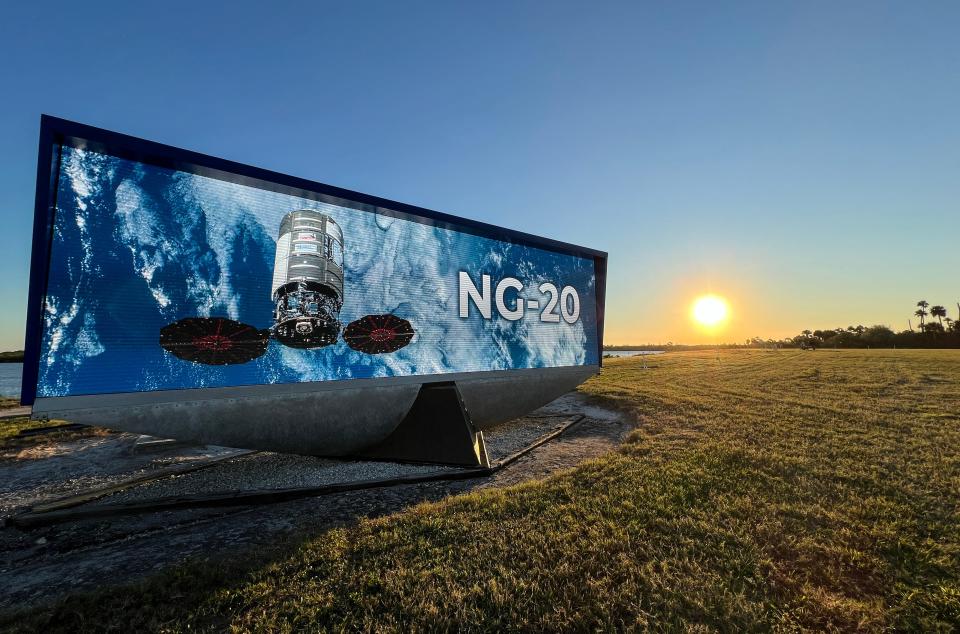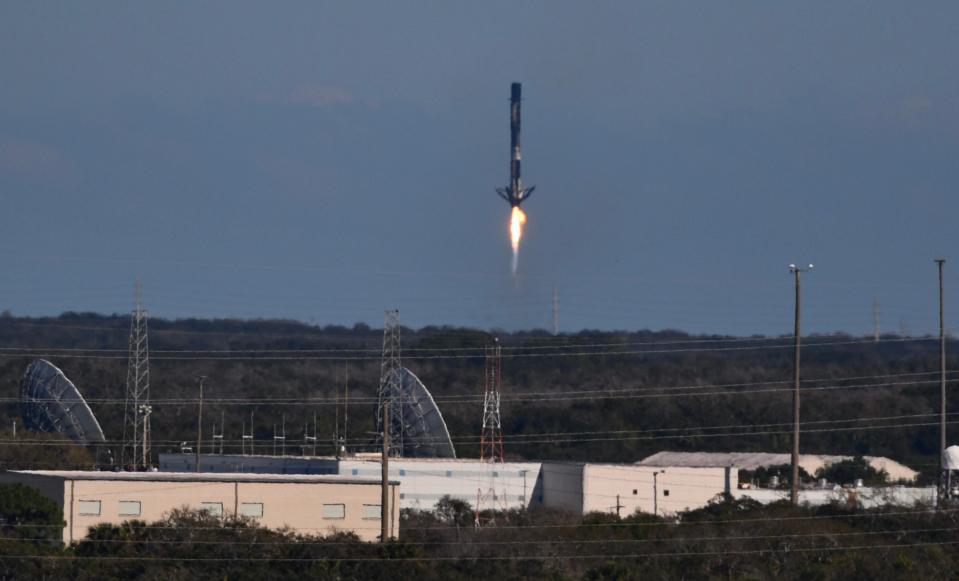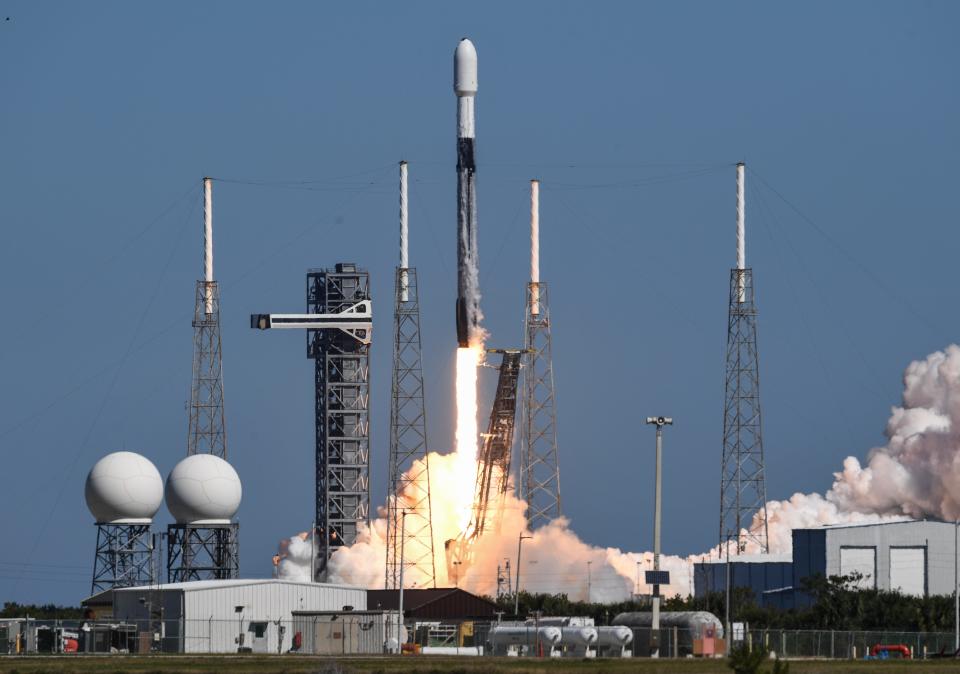NASA, SpaceX, Northrop Grumman team up on International Space Station cargo resupply launch
In a NASA-private-company team effort, a SpaceX Falcon 9 rocket lofted its first Northrop Grumman Cygnus spacecraft to the International Space Station on a Tuesday lunch-hour resupply mission.
"There is tremendous opportunity to stimulate commercial and civil space activities in the space sector," Diane Howard, National Space Council director of commercial space policy, said roughly three hours before launch during a morning conference speech at the Orange County Convention Center.
"And there is tremendous benefit to our nation from the innovation that results," Howard said.
The 12:07 p.m. EST liftoff from Cape Canaveral Space Force Station was named NG-20, marking Northrop's 20th supply mission to the space station.
NASA reported the Cygnus is carrying 3,017 pounds of science investigations, 2,493 pounds of vehicle hardware, 2,490 pounds of crew supplies, 149 pounds of computer resources and 35 pounds of spacewalk equipment.
Total mass: 8,214 pounds.
“Cargo mission preparations and space research kept the Expedition 70 and Axiom Mission 3 crews busy at the beginning of the week,” NASA Space Operations officials said in a Monday afternoon tweet.
“The 11 residents working together aboard the @Space_Station also continued their ongoing biomedical science and lab maintenance activities,” the tweet said.
At 4:20 a.m. Thursday, NASA astronaut Jasmin Moghbeli is scheduled to capture the Cygnus with the space station's Canadarm 2 robotic arm. Afterward, the Cygnus will dock with the orbiting outpost's Unity module.
The ISS National Laboratory is sponsoring more than 20 science payloads aboard the spacecraft.

"We have researchers from all over the world conducting this great innovative and technically excellent research," Meg Everett, deputy scientist with NASA’s International Space Station Program, said during a Friday webinar.
"All of this will go towards achieving NASA's goals of extending human presence in low-Earth orbit and those exploration missions beyond low-Earth orbit to places like the moon — and out to Mars one day," Everett said.
"We also want to benefit humans here on earth with space-based science," she said.

In a key experiment, the ISS's first surgical robot will perform simulated surgical tasks, both autonomously and while guided remotely by a controller on Earth.
"We think this has lots of applications. Both as NASA tries to do more aggressive missions, they're going to think about more advanced medical care," Shane Farritor, co-founder and chief scientific officer at Virtual Incision Corp., said during the webinar.
"But certainly here on Earth, if you have a specialist who's a very good surgeon and that specialist could dial into different locations and help with telesurgery or remote surgery like that, it has big applications to get people higher quality care," Farritor said.
"And that's important for rural areas or critical-access hospitals, where more advanced techniques may not be available," he said.

For the latest news from Cape Canaveral Space Force Station and NASA's Kennedy Space Center, visit floridatoday.com/space.
Rick Neale is a Space Reporter at FLORIDA TODAY. Contact Neale at 321-242-3638 or [email protected]. Twitter/X: @RickNeale1
This article originally appeared on Florida Today: NASA, SpaceX, Northrop team up on ISS cargo resupply launch from Cape
